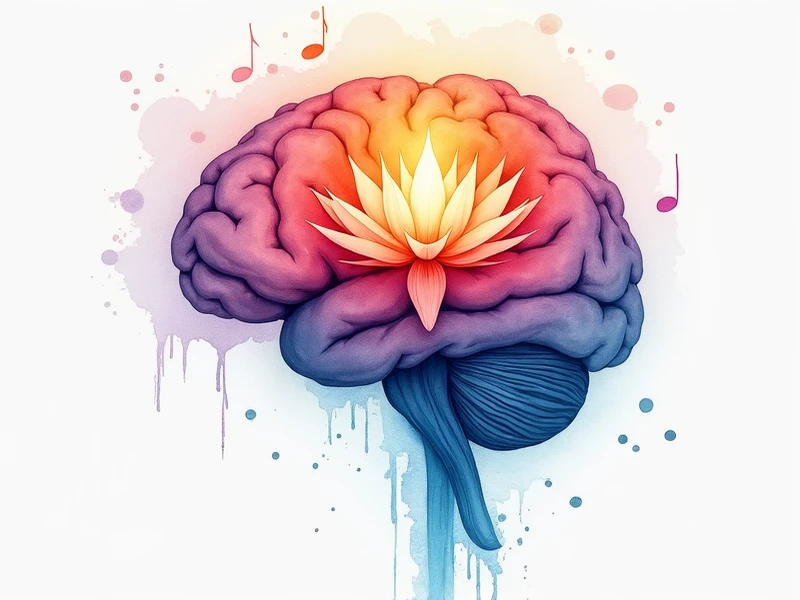Discover comprehensive nursing interventions to manage anxiety, featuring mindfulness techniques, CBT, and lifestyle changes. Enhance mental well-being with practical tips for specific contexts.
Nursing Interventions to Manage Anxiety: A Comprehensive Guide

In the evolving landscape of mental health care, nursing interventions to manage anxiety have taken center stage. Addressing anxiety not just as a distress signal but as a multifaceted disorder, these interventions play a crucial role in supporting individuals towards better mental health.
Understanding Anxiety and its Impact

Anxiety, when it becomes chronic, can significantly disrupt daily life, affecting everything from personal relationships to professional productivity. Recognizing anxiety involves understanding both its mental and physical symptoms ??from persistent worry to heart palpitations.
Comorbidities: Anxiety and ADHD
Particularly in patients with ADHD, anxiety can manifest uniquely, complicating both identification and management. The intertwining symptoms of these conditions demand specialized intervention strategies, such as mindfulness techniques to reduce ADHD-related anxiety.
Evidence-Based Nursing Interventions for Anxiety Management
Mindfulness Techniques for Anxiety Reduction
One innovative approach in managing anxious feelings is Mindfulness techniques. These interventions teach patients to observe their feelings objectively, which can drastically reduce the immediacy and impact of anxiety symptoms.
The Movie Screen Technique for Emotional Regulation
This technique encourages patients to visualize their emotions as a movie, watching detachedly as their feelings play out on a screen. This helps create a healthy separation from intense emotions, allowing for clearer thought processes and reduced anxiety.
Mindfulness Apps: Headspace and Alternatives
Digital solutions like mindfulness apps provide accessible tools for anxiety management, offering guided sessions that can help users maintain regular mindfulness practices.
Music Mindfulness Playlists for Calming and Centering
Incorporating music into mindfulness practices can enhance the calming effects of music and provide a focus point during anxious periods.
Mantras: Creating Personalized Affirmations for Anxiety Relief
Personalized affirmations or mantras can empower individuals to shift their focus from anxious thoughts to more constructive or calming beliefs.
Breathwork: Intentional Deep Breathing Exercises
Simple yet effective, structured deep breathing can help mitigate the acute symptoms of anxiety, providing immediate relief.
Cognitive Behavioral Therapy (CBT) Techniques
CBT is a cornerstone of psychological intervention that helps patients identify and reframe negative thought patterns, a common issue in those suffering from anxiety.
Identifying and Challenging Negative Thought Patterns
Nurses can guide patients to recognize their automatic negative thoughts and challenge their validity, a key step in CBT.

Cognitive Restructuring Techniques
Through cognitive restructuring, patients learn to replace negative thoughts with more positive, realistic ones, reducing the emotional impact of anxiety.
Behavioral Experiments to Test Anxiety-Provoking Situations
By gradually exposing patients to their fear triggers, behavioral experiments can desensitize anxiety responses and increase overall emotional resilience.
Lifestyle Modifications for Anxiety Relief
Equally important are the lifestyle changes that can support anxiety management.
The Importance of Regular Exercise
Physical activity releases endorphins, natural stress and pain relievers, which improve mood and reduce anxiety.
Dietary Considerations for Anxiety Management
A well-balanced diet can impact neurotransmitter production and response, significantly affecting mood and anxiety levels.
Sleep Hygiene: Optimizing Sleep for Mental Well-being
Consistent, restful sleep is crucial in managing anxiety, and good sleep hygiene can significantly improve sleep quality.
Tips to Manage Anxiety and Stress in Specific Contexts
How to Manage ADHD Anxiety
Understanding the link between ADHD and anxiety is vital as it helps tailor interventions that address both conditions simultaneously, possibly using mindfulness to reduce ADHD symptoms by 30%.
How to Manage Workplace Anxiety
Identifying specific stressors in the workplace and employing targeted stress-reduction techniques can help manage situational anxiety effectively.
Promoting Communication Strategies for Anxiety Management
Open conversations about anxiety triggers and feelings can alleviate workplace anxiety, fostering a supportive environment.
Q&A Section
Question: How can nursing interventions specifically address anxiety in patients with ADHD?
Answer: Nursing interventions can be particularly effective by integrating mindfulness and behavioral strategies that cater to the unique challenges faced by those with ADHD. Techniques such as the Movie Screen method not only help in distancing from overwhelming emotions but also improve focus and emotional regulation, key areas affected by ADHD. Combining these with structured routines and possibly medication adjustments can yield significant improvements in managing anxiety.





